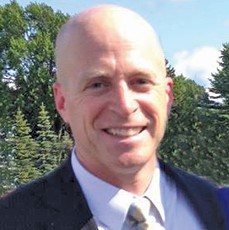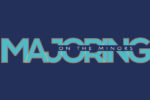 |
Why do nonscientists trust science more than scientists do? The media portrays scientific consensus as if it were irrefutable fact. And when searching for certainty, much of the public turns first to folks wearing white lab coats.
But when you listen closely to humble scientists, you’ll hear them speak in terms of uncertainty. Inside their labs, researchers focus less on the facts than they do on their ignorance—exploring the darkness of what they don’t know.
Scientific truth isn’t absolute
Dr. Derek Muller created the YouTube science channel Veritasium, which has a billion views and 8+ million subscribers. One video examines the question, “Is most published research wrong?” Muller concludes, “Even trying our best to figure out what’s true using our most sophisticated and rigorous mathematical tools, peer review, and the standards of practice, we still get it wrong so often.”
Dr. Stuart Firestein, the chair of biological studies at Columbia University, wrote in his book Ignorance: “It may be surprising to the nonscientist, but all scientists know that facts are unreliable. No datum is safe from the next generation of scientists with the next generation of tools. The known is never safe; it is never quite sufficient.”
Dr. Arthur Eggert, a retired professor from Duke University with a Ph.D. in chemistry, defines “a fact in argumentation is something that everyone agrees is true, whether it is true or not.”
Granted, long-established, testable models in the hard sciences are less likely to be revised or replaced than newer models in a younger, observational science like cosmology (such as the Big Bang theory). Nevertheless, scientific truths are always provisional, never absolute.
Scientists’ statements aren’t always scientific
So if we should discern scientific statements carefully, what about statements by scientists that aren’t even science?
Only one of these two statements by revered astrophysicist Stephen Hawking is scientific: “The horizon has constant surface gravity for a stationary black hole,” and “There is no heaven or afterlife . . . that is a fairy story for people afraid of the dark.”
Martin Rees, once considered Britain’s top scientist as president of the Royal Society, responded to his friend’s unscientific assertions, “Stephen Hawking is a remarkable person whom I’ve known for 40 years . . . [but] he has read very little philosophy and even less theology, so I don’t think we should attach any weight to his views on this topic.”
Our culture loves experts. In searching for truth and certainty these days, crowds turn to bright people in white lab coats more than anyone else. We certainly learn a great deal from them! But scientists don’t speak with the final authority with which they’ve been crowned.
There is one man, however, who does have omniscience (“all knowledge”) and speaks with ultimate authority. But on the day that the crowds who had once turned to him now turned on him, he said little. That day he stood beaten, bloodied, and mocked by the crowd that once came to hear his every word. With his hands bound as a criminal prepared for execution, pitifully looking like the last person to speak with any kind of authority, he made this audacious claim: “Everyone on the side of truth listens to me” (John 18:37).
Read Jeremiah 17:9; Proverbs 3:5; and Romans 11:33-36.
1. Agree or disagree: “When people view science as objective truth, they understand neither science nor human beings.”
Agree. I think Firestein and Muller would also agree. Eggert certainly would. He wrote a series entitled What is truth? for FIC in 2018 in which he compares scientific truth with other sources, including Scripture: What is truth, part 1; What is truth, part 2; What is truth, part 3; What is truth, part 4.
Humble and honest scientists understand how confirmation bias, cherry-picking of data, and yearning for success can skew scientific research. It’s a human activity, carried out by human beings with self-deluding hearts. It seems like society forgets this, even when scientists don’t. People yearn for certainty, and those who deny God’s existence find science to be their best option for finding the closest thing they can get to absolute truth. (Dr. Muller’s full quote from above is “Even trying our best to figure out what’s true using our most sophisticated and rigorous mathematical tools, peer review and the standards of practice, we still get it wrong so often. So how frequently do we delude ourselves when we’re not using the scientific method? As flawed as our science may be, it is far away more reliable than any other way of knowing that we have.”)
2. Why does the writer of Proverbs contrast “trust in the Lord” with “your own understanding”?
Answers will vary, but one answer is that when our own understanding of life in this world increases, we can become more self-sufficient and less dependent on others, especially God. Dependency on the Lord is a matter of trust, which has been described as “heart-knowledge.” But our heart is divided. Our sinful nature not only deceives us (Jeremiah passage), it tries to convince us that our understanding is so sophisticated that we know better than God and would dare to counsel God on what he should do!
By the way, you might like to know how Oxford professor and Christian apologist John Lennox countered Hawking’s assertion that “there is no heaven or afterlife . . . that is a fairy story for people afraid of the dark.” Lennox responded, “Atheism is a fairy story for people afraid of the light.” Not a scientific statement either, of course, but an accurate one.
Author: James Borgwardt
Volume 108, Number 03
Issue: March 2021
- Faith and the thinking Christian: Part 6: Evolution and the thoughtful Christian
- Faith and the thinking Christian: Part 5: Home field advantage
- Faith and the thinking Christian: Part 4: Does faith hinder scientific discovery?
- Faith and the thinking Christian: Part 3: The misperception of scientific certainty
- Faith and the thinking Christian: Part 2: The limits of science
- Faith and the thinking Christian: Part 1: Science as servant






